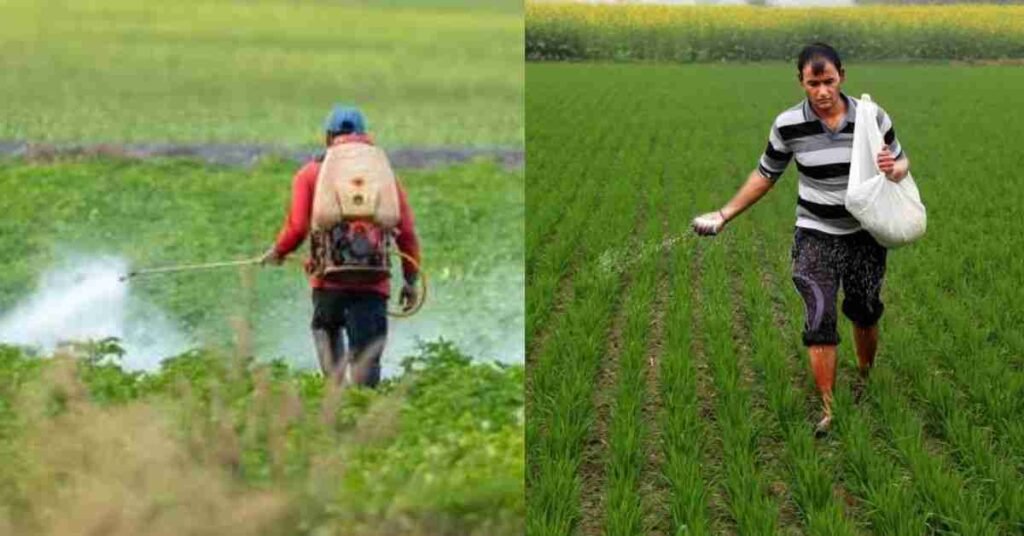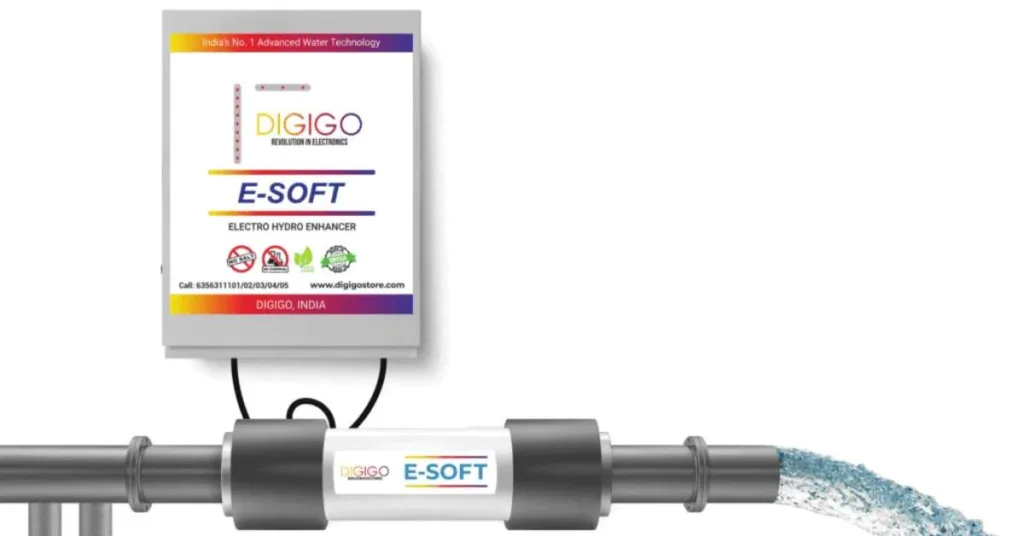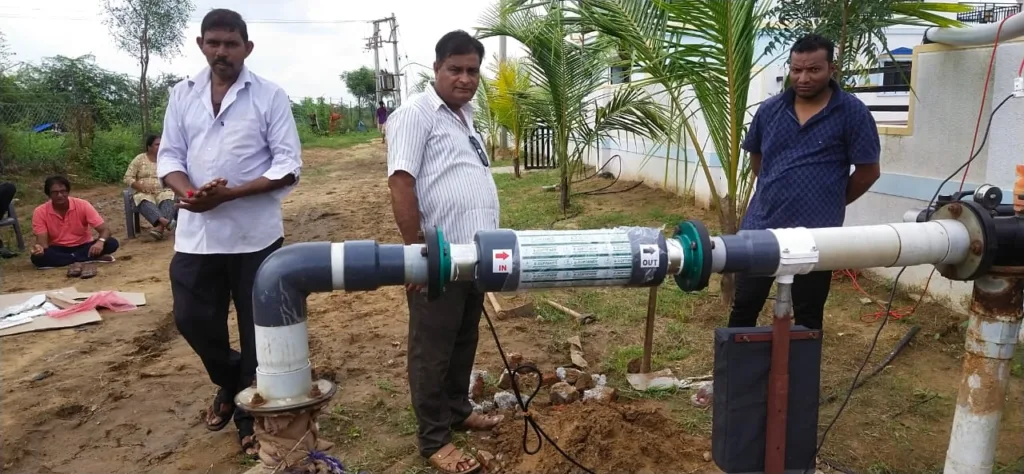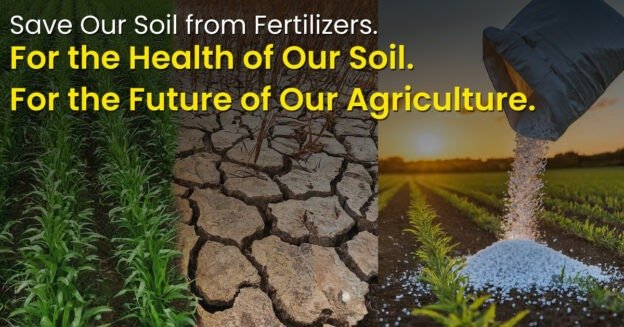As Indian farmers, our relationship with the soil is deeper. This blessed land has nourished and sustained generations, providing us with prosperous harvests that feed our nation. However, in our hunt for higher crop production, we may have unintentionally set into a dangerous cycle that is slowly poisoning the very source of our prosperity – our fertile soil.
Contents
The Rise of Fertilizers
Imagine the days of your ancestors, when farming was a more natural and organic practice. The soil, rich in nutrients, required little more than the occasional compost or manure to grow crops. However, as populations grew and demand for food increased, traditional methods couldn’t keep up.

The deeper ground water brought bigger sized hard minerals like Calcium and Magnesium along with metal molecules. The bigger sized hard minerals created a hard and salty layer on the upper surface of the land and the metals kept blocking the lower layer of the soil and it became hard. Hence the minerals that were actually good for the plants and soil like Calcium, Magnesium, Oxygen and Nitrogen were restricted to rich the plant roots. This is when chemical fertilizers emerged as a quick-fix solution to boost crop production.
Initially introduced as a modern agricultural miracle! These artificial compounds promised to recharge the exhausted nutrients in the soil, allowing us to grow more on the same land. Attracted by the prospect of larger production, we embraced fertilizers wholeheartedly, without realizing the long-term consequences that would unfold.
Temporary Growth of Fertilizers
Much like addictive materials, fertilizers provide an instant boost to our crops, giving us temporary high productivity. However, this artificial ingestion of nutrients came at a heavy cost to the soil’s natural health and balance.
Over time, the repeated use of chemical fertilizers has disrupted the ecosystem within the soil, killing off beneficial micro organisms and degrading its structure. The once fertile, moisture-retaining earth has become dry, compacted, and lifeless – a mere vessel for holding plants, rather than nurturing them.
Crisis of Pesticides and Insecticides
As if the damage caused by fertilizers wasn’t enough, we also introduced pesticides and insecticides into the equation, believing they would protect our crops from pests and diseases. We didn’t realize that these toxic chemicals would not only kill the diseased insects but also inject poison into the soil. Gradually we compromised soil quality.
This ruthless cycle continued, with us applying more and more chemicals to compensate for the declining soil health. Our once-thriving lands have become increasingly dependent on these artificial inputs, slowly losing their natural ability to sustain life.
Reduce Use of Fertilizers with E-Soft
During this crisis, a ray of hope has emerged in the form of E-Soft, India’s #1 water softener brand, offering a revolutionary approach to sustainable agriculture. By harnessing the power of 5th generation water softening technology, E-Soft Agriculture Water Softener has pioneered a solution that can significantly reduce use of fertilizers, chemical and pesticides.

E-Soft’s advanced water softeners work by neutralizing hardness-causing minerals like calcium and magnesium through an electronic pulse process. Hence the hard minerals and the metal molecules that block the soil surfaces are now neutralized. So no salty layer is formed. Moreover, soft water improves the structure as well as holds the moisture level of the soil.
- Nutrient Absorption: By breaking down large mineral particles into micron-sized molecules, E-Soft’s soft water allows hassle-free nutrient absorption through the pores of plant roots, reducing the need for chemical fertilizers by up to 70%!
- Soil Revitalization: Soft water prevents mineral buildup and salinity, helping to restore the soil’s natural structure, fertility, and moisture-retaining capabilities.
- Pest Resistance: Healthier, stronger plants nourished by soft water are more resistant to pests and diseases, minimizing the requirement for harmful pesticides and insecticides.
- Water Conservation: E-Soft’s soft water increases the soil’s moisture-holding capacity, reducing the frequency of water irrigation cycles and promoting water conservation.
- Cost Savings: By drastically reducing your reliance on expensive chemical inputs, E-Soft’s water softening solutions translate into substantial cost savings for your farming operations.
The Time to Act Now
As leaders of India’s agricultural heritage, it is our duty to preserve the health and fertility of our lands for future generations. Our founder has taken the initiative to make the farmers aware of this situation. And for that, we are conducting free workshops and gatherings in small towns. You can see the video of how they reduce use of fertilizers in farming..
The continuous degradation of our soil quality due to excessive chemical use is not only unsustainable but also a threat to the long-term viability of farming itself.
By embracing E-Soft’s eco-friendly water softening technology, we can free agriculture from chemical dependency. This way we can restore the natural balance of our farmlands. It’s a choice between continuing a toxic legacy or paving the way for a greener, more sustainable future for Indian agriculture.

Contact us for this revolutionary water softener system for agriculture: E-Soft and to explore more of our range of agricultural water softeners. Take the first step towards a chemical-free, soil-friendly farming revolution. Let’s join hands in preserving the rich, fertile heritage of our lands for generations to come
After all, the health of our soil is the foundation upon which the future of Indian agriculture rests !!!
